NI hauliers fail to get EU border permits
- Published
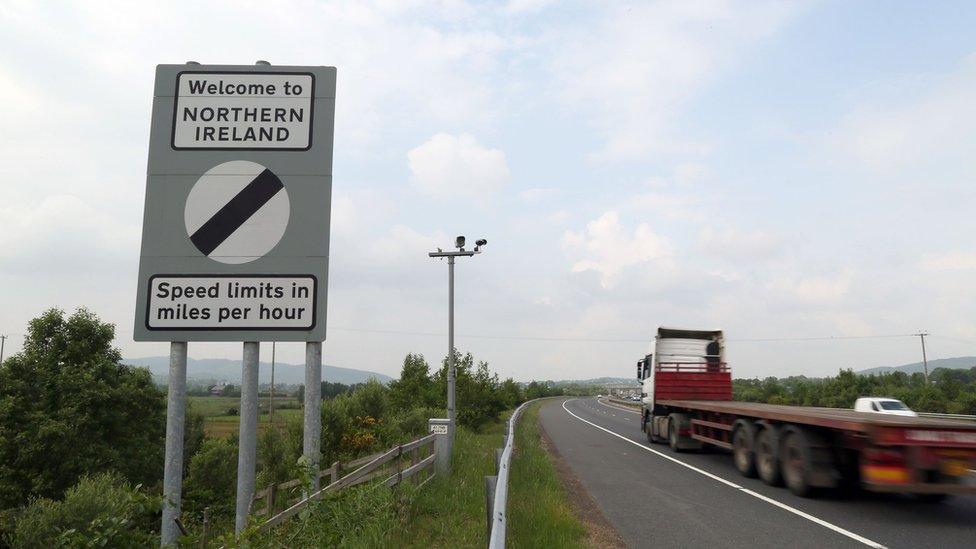
About 13,000 lorries cross the Irish border on average every day
Several Northern Ireland firms seeking special permits to trade across EU borders after Brexit have been told their applications were unsuccessful.
Seamus Leheny from the Freight Transport Association (FTA) said he was contacted by a number of firms over the weekend who failed to obtain a permit.
He claimed the Department of Transport (DfT) allocation process was "skewed against" Northern Ireland hauliers.
But the DfT said it was confident that hauliers "should not need" the permits.
In a statement, the department said the government was still working towards a Brexit deal and hoped to maintain the "current liberalised access" to EU markets.
Why are hauliers seeking permits?
There is uncertainty in the haulage industry about what will happen at EU borders if the UK leaves without a Brexit deal next month.
Back in November, the government issued guidance to UK hauliers, external stating that they "might need ECMT permits to transport goods in the EU and European Economic Area (EEA)" if there is no deal by 29 March.
The European Conference of Ministers of Transport (ECMT) permits can be used in a list of 43 countries which have signed up to the international arrangement.
The deadline for 2019 applications expired on 18 January 2019 and on Saturday night, many hauliers were informed on whether or not they were successful.
Why does the FTA think NI firms are disadvantaged?
Seamus Leheny, the FTA's policy manager in Northern Ireland, explained that ECMT permits were allocated on a points-based system, with higher scores awarded to firms who make a larger number of journeys into EU member states.
"The big problem for Northern Ireland," he claimed, was that "the system was somewhat skewed against us because DfT decided not to give any credit to journeys to the Republic of Ireland from Northern Ireland operators".
"However, if you were an English, Scottish or Welsh haulier, journeys to the Republic of Ireland did give you a credit," he added.
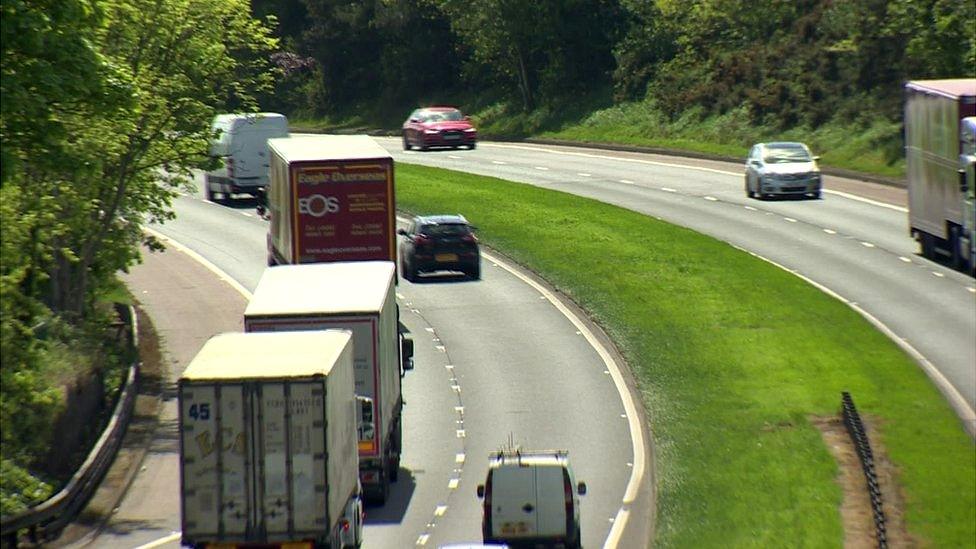
Seamus Leheny of the Freight Transport Association said permits were allocated on a points-based system
The permits are in high demand, and the FTA estimates that about 50,000 will be needed if there is a no-deal Brexit.
However, Mr Leheny said that just over 1,200 permits are available for the UK as a whole and he expects that only 60-70 will be made available to Northern Ireland firms.
He said the lack of permits would mean that many hauliers' business models could become "unviable" if the UK leaves the EU without a deal.
Will hauliers need a permit to cross the Irish border?
In its guidance issued last year, the government said it expected that Northern Ireland hauliers "will not need an ECMT permit" to drive to or through the Republic of Ireland.
It stated it would not require Republic of Ireland hauliers to have ECMT permits to operate in Northern Ireland.
It added that the UK was seeking a reciprocal agreement from the Irish government to allow Northern Ireland hauliers to travel across the Irish border without a permit.
What will happen on 29 March if there is no deal?
The Department for Transport has said it is "confident of securing a relationship with the EU which maintains the current, liberalised access we enjoy".
Last week, UK Transport Minister, Jesse Norman said in a statement: "The government's expectation is that hauliers should not need an ECMT permit to continue doing a range of business in all or much of the EU, even in the event of no deal. But it is important to continue to prepare for all possible scenarios."
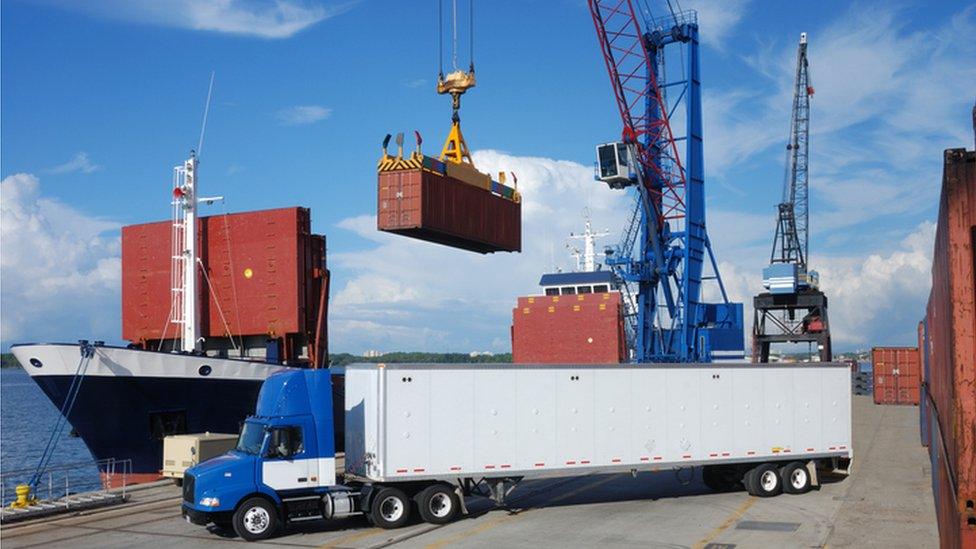
He explained that the European Commission has proposed legislation that would allow UK hauliers basic rights to conduct operations to, from and through the EU for a limited period of nine months after exit, if there is no deal.
"The Commission's proposal will need to be agreed by the Council and European Parliament, and is being considered by both institutions urgently."
The minister said the EU's proposal was "predicated on the UK's granting equivalent access for EU hauliers to the UK" and he laid legislation before Parliament last week to provide for that access.
- Published22 January 2019

- Published1 November 2018
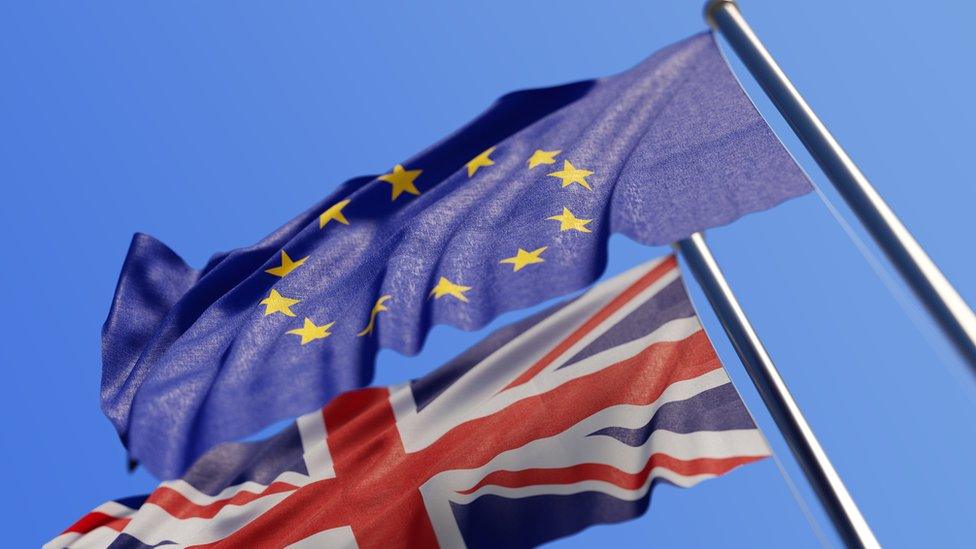
- Published18 July 2018
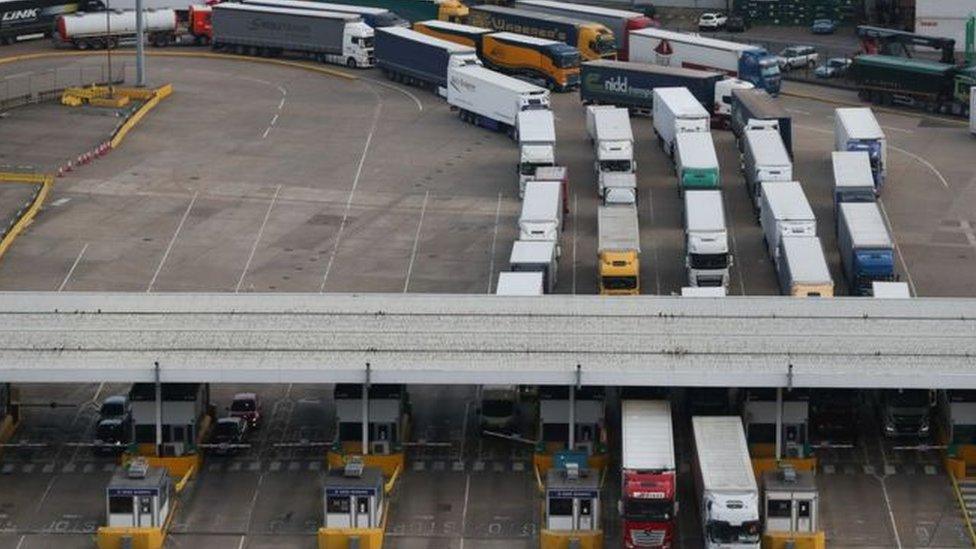
- Published30 July 2019
